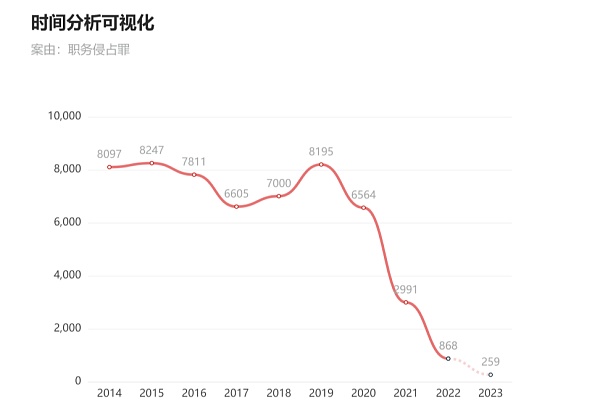Co-Chairman of the Hong Kong Blockchain Association, Fang Hongjin: The Hong Kong government should not issue a Hong Kong dollar stablecoin.
Fang Hongjin, Co-Chairman of the Hong Kong Blockchain Association, opposes the issuance of a Hong Kong dollar stablecoin by the government.After listening to Techub News’ live broadcast, Fang Hongjin, co-chairman of the Hong Kong Blockchain Association, expressed different views on the Hong Kong dollar stablecoin proposal. In his article, he expressed disagreement with the suggestion that the Hong Kong government issue a Hong Kong dollar stablecoin backed by foreign exchange reserves.
We believe that the truth will become clearer with more debate. Techub News is now publishing Mr. Fang Hongjin’s article in full for readers to consider:
Should the Hong Kong government issue a Hong Kong dollar stablecoin?
–Discussions with Mr. Wang Yang, Mr. Cai Wensheng, and Mr. Lei Zhibin
- Blockchain startup Web3Go completes $4 million seed round financing, led by Binance Labs.
- 9 Important European Cryptography Regulations to Pay Attention to Besides MiCA
- Review of Web3 Blockchain Security Situation and Anti-Money Laundering Analysis in the First Half of 2023, and Summary of Key Regulatory Policies in the Cryptocurrency Industry
Recently, Mr. Wang Yang, Mr. Cai Wensheng, and Mr. Lei Zhibin issued a public call, suggesting that the Hong Kong SAR government issue a Hong Kong dollar stablecoin backed by foreign exchange reserves.
I completely disagree with this proposal, both from a financial perspective and from a blockchain technology application perspective.
Before expressing my disagreement, we need to clarify two basic concepts:
First, a government with the right to mint coins issues a digital form of its fiat currency (corresponding to paper currency), commonly referred to as a Central Bank Digital Currency (CBDC), which is a digital fiat currency, such as the digital renminbi issued by the People’s Bank of China.
Second, a fiat-backed stablecoin is a digital certificate issued by the issuer, which is anchored to one or more fiat currencies and is issued 1:1 as collateral. The standard term is Stable Coin, and examples include USDT and USDC, which are both issued by private institutions anchored to the US dollar and account for over 85% of the global stablecoin issuance.
Digital fiat currency and fiat-backed stablecoins are very different in terms of issuing subjects, anchoring modes, encryption technology forms, and application scenarios.
So let’s start with a simple question: Isn’t the Hong Kong SAR government going to issue a digital Hong Kong dollar?
The answer is no. Leaders of relevant departments of the Hong Kong government have repeatedly stated publicly that the Hong Kong government is actively studying the issuance of a digital Hong Kong dollar.
If the Hong Kong government plans to issue a digital Hong Kong dollar, why issue a Hong Kong dollar stablecoin backed by its foreign exchange reserves?
I don’t know the specific composition of Hong Kong’s foreign exchange reserves, but the US dollar is definitely the largest component, so according to the definition of a fiat-backed stablecoin, if foreign exchange reserves are used as collateral, the stablecoin issued should be a US dollar stablecoin or a basket of hard currency stablecoins (similar to the Libra stablecoin proposed by Facebook a few years ago), not a Hong Kong dollar stablecoin.
The Hong Kong SAR Government is the issuer of legal tender Hong Kong dollars. Hong Kong dollar banknotes and digital Hong Kong dollar are the same, only the form of the carrier is different. It is logically unreasonable for the Hong Kong government to use its own legal tender as collateral to issue a derivative substitute. In actual operation, it will definitely cause confusion: users have both digital Hong Kong dollars and Hong Kong government Hong Kong dollar stablecoins in their hands. Should they be stored in a digital wallet? Can they be freely converted? Which one should be used in which scenario? If both can be used interchangeably, why issue two?
Mr. Wang Yang said in a live broadcast hosted by Techub NEWS in Hong Kong last night (July 6) that the Hong Kong dollar stablecoin should be endorsed and regulated by the government, which is easier to achieve regulatory compliance and stability.
I believe that this is a fundamental misunderstanding of the role of the government in a market economy. What the government regulates must be operated by non-governmental entities. The government cannot and should not endorse, issue, and regulate itself, and be both a referee and an athlete.
Will the government issue stablecoins still be non-compliant? If it is not compliant, who will play the regulatory role and impose penalties? Will the government punish itself?
Mr. Cai Wensheng said that the Hong Kong dollar is anchored to the US dollar, but it does not mean that the issuance of Hong Kong dollar stablecoin is meaningless, and it has a certain driving effect on de-dollarization.
I personally think that issuing Hong Kong dollar stablecoins is meaningful, but it should not be issued by the Hong Kong government, but by private institutions that comply with regulations under the supervision of the Hong Kong government. As for using Hong Kong dollar stablecoin to promote “de-dollarization”, since the Hong Kong dollar and the US dollar have a linked exchange rate and can be freely exchanged in Hong Kong, the total amount of Hong Kong dollars and the total amount of US dollars are completely incomparable. How to promote “de-dollarization”?
Mr. Lei Zhibin said: “Hong Kong dollar stablecoins may exist in a mixed form, not only issued on existing public chains.”
In industry jargon, only hybrid CBDCs, which are wholesale CBDCs issued by central banks to private financial institutions such as commercial banks, and then retailed to ordinary users by private financial institutions, are more typical. Sweden is experimenting with this model, but it is not yet mature enough to be widely promoted.
This model has experimental value in Hong Kong, because although the Hong Kong government has the right to mint money, it does not have a central bank, and only authorizes HSBC, Bank of China, and Standard Chartered Bank as issuing banks. Therefore, the Hong Kong Financial Management Department authorized the issuance of digital Hong Kong dollars, and then wholesale them to these large commercial banks, which will distribute them to ordinary users, similar to the two-tier structure of the People’s Bank of China issuing digital renminbi, which may play a more efficient role.
However, this has nothing to do with the Hong Kong government issuing stable coins.
Mr. Lei Zhimin also stated that: issuing stable coins based on physical resources such as carbon emissions or oil may be an opportunity.
This is another suggestion that I do not approve of, because stable coins anchored to carbon emissions or oil are relatively unstable compared to specific fiat currencies. Everyone may have seen the ups and downs of international oil prices. Issuing digital tokens anchored to oil delivery rights is actually a type of digital certificate for oil futures, which has exploratory significance, but it is definitely not a stable coin.
In addition, the Hong Kong Monetary Authority has already clearly stated that it will prioritize the supervision of stable coins anchored to fiat currencies, so it is questionable whether private institutions can issue stable coins anchored to oil in Hong Kong. How could the Hong Kong government issue “stable coins” anchored to physical assets?
Mr. Cai Wensheng stated: The US cryptocurrency regulation is chaotic, and Hong Kong welcomes the good time to issue Hong Kong dollar stable coins.
Personally, I think that the US regulation of encryption is not chaotic at all. Recently, the SEC’s regulatory moves are actually very clear in logic, representing the traditional financial order to regulate the encryption industry and trying to incorporate the encryption industry into the regulatory system of traditional finance.
This is an opportunity and a huge challenge for Hong Kong to vigorously develop Web3.0 and the virtual asset industry. It is well-known that since the birth and circulation of virtual currencies such as Bitcoin, the most prominent feature is peer-to-peer transfer and user anonymity, which has been a pain point for governments around the world to effectively supervise for many years.
Hong Kong has a sound financial regulatory legal system and enforcement capabilities, so Hong Kong can become an international financial center. I personally think that encryption projects that cannot accept compliant supervision in the United States are unlikely to pass through the existing and upcoming financial regulatory laws and regulations in Hong Kong.
Finally, I would like to express my sincere gratitude to Mr. Wang Yang, Mr. Cai Wensheng, and Mr. Lei Zhibin for their encouragement and support in promoting the development of Web 3.0 and the virtual asset industry in Hong Kong. I also want to thank my colleagues at the Hong Kong Blockchain Association for working together with me to explore, research, and bravely practice, and to promote Hong Kong’s digital finance and digital economy!
Fang Hongjin
July 7, 2023
We will continue to update Blocking; if you have any questions or suggestions, please contact us!
Was this article helpful?
93 out of 132 found this helpful
Related articles
- US SEC: How to Use Howey Test to Determine Whether a Cryptocurrency is a Security?
- Viewpoint | BITKRAFT Ventures: How Can Blockchain Games Attract Users?
- Evening Read | Cosmos’ Threat to Traditional Blockchain
- Ethereum EIP Review: How Does the Ethereum Community Conduct Open Governance?
- Exploring Interoperability of Modular Blockchain: What Are the Solutions?
- Can AI Trigger the Fifth Technological Revolution? (Part 2)
- Comprehensive Explanation of the Shoal Framework: How to Reduce Bullshark Latency on Aptos?






